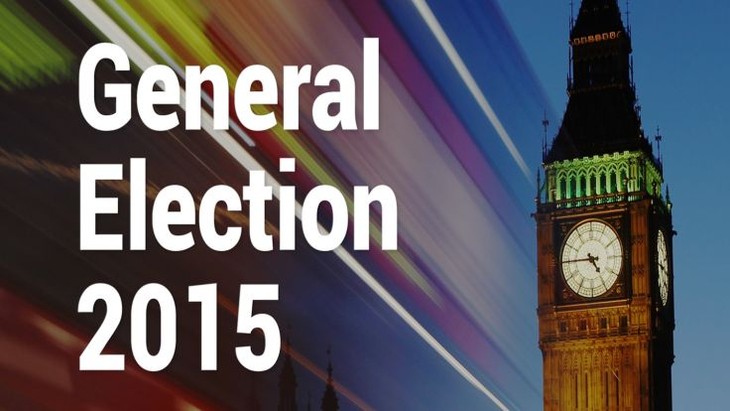(VOVworld) – The United Kingdom’s general election will be held on May 7. Recent polls have shown nearly equal support for the two biggest parties.
The UK general election 2015 will probably end in a coalition finish. It’s predicted that neither Prime Minister David Cameron’s Conservative Party nor Ed Miliband’s Labor Party will win a majority of the 650 seats in the House of Commons needed to form a government.

(photo: ibtimes.co.uk) |
A neck and neck race
The UK election is a race between the Conservative Party and the Labor Party and their competing economic policies.
Public opinion polls before the election have showed no significant gap between them. A poll by Opinium showed support for the Conservatives at 36% and for Labor at 32%. A poll by YouGov showed 36% support for Labor and 33% for the Conservatives.
The Labor party of Ed Miliband has made concrete economic reform promises to increase the minimum wage, freeze enterprise taxes and energy prices, and end the "epidemic" of zero-hours contracts to protect workers’ rights. The Conservatives’ platform is to eliminate the budget deficit and run a surplus by the end of the next session of parliament, increase investment in health services, build more houses and schools, and exempt from income taxes citizens with low incomes.
Indecisive result predicted
Although the UK’s positive growth in the gloomy EU economy is a plus for Prime Minister David Cameron and his Conservative Party, they have heard a lot of criticism from other parties because the current economic recovery has not improved people’s lives. Over the last 5 years in order to balance the budget, the Conservatives have applied austerity measures and cut social welfare. Labor blames the Conservatives for Britain's “cost of living crisis” and has called on voters to make a change.
Another issue is whether the UK will stay in the European Union. A majority of Britons have shown dissatisfaction with the European Commission’s influence on the UK’s international status and prestige. To win these voters, the Conservatives say if they win, they will hold a referendum on the UK leaving the EU, and if it leaves, the UK will independently engage in trade agreements with other countries, use its resources for its own citizens, administer its borders, improve its economy, generate more jobs, and recover its spearhead industries. Mr. Miliband has made it clear from the beginning that if Labor rules, it will not mention the future of the UK in the EU.
Analysts predict a negotiation to form a coalition government will occur after the election because no party will win a big enough victory to form a majority government.